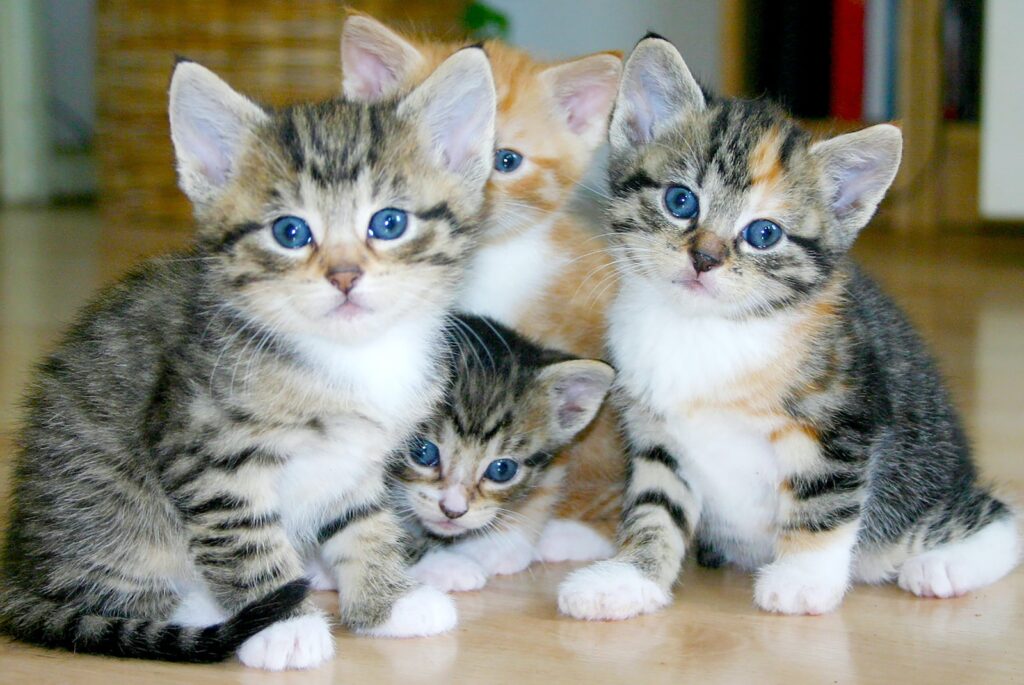Can Cats Eat Pears? — Yes/No, They Can/Cannot
When it comes to cats and pears, the answer is No, cats cannot eat pears. While pears contain certain beneficial nutrients for humans, they lack essential nutrients that cats require for a balanced diet. Feeding pears to cats can potentially lead to digestive issues and other health problems. It’s best to avoid offering pears as a regular part of their diet.
Can Kittens Eat Pears?
Kittens, on the other hand, should also avoid consuming pears. Just like adult cats, kittens have specific dietary needs that are not met by pears. It’s important to provide them with a balanced diet specially formulated for kittens, which typically includes high-quality kitten food. Consult your veterinarian for the best feeding practices for your kitten.
Things to Consider When Feeding Pears to Kittens
If you’re considering introducing pears to your kitten’s diet, it’s crucial to consider that pears can be a potential choking hazard due to their size and texture. Additionally, kittens may struggle to digest pears properly, which can lead to gastrointestinal discomfort. It’s always advisable to prioritize their nutritional needs and opt for appropriate kitten food instead.
Nutritional Benefits of Pears for Cats — Why Pears are Good for Cats? /Why Cats Can Have Pears
1. Hydration and Fiber Content
Pears are known to have high water content and provide a good source of dietary fiber for humans. However, cats have different hydration and fiber requirements. Cats are obligate carnivores, meaning their bodies are designed to primarily digest meat-based diets. Therefore, they rely on animal protein rather than plant-based sources like pears.
2. Natural Sugars
Pears contain natural sugars, which can be detrimental to a cat’s health. Cats have a limited ability to process sugars, and excessive sugar consumption can lead to weight gain, diabetes, and dental issues. It’s essential to prioritize low-sugar alternatives that align with their dietary needs.
3. Vitamin and Mineral Profile
While pears contain certain vitamins and minerals, cats obtain these nutrients more efficiently from other sources. Feeding pears to cats as a way to provide vitamins or minerals can potentially disrupt their overall nutritional balance. Cats have specific dietary requirements that are best met through a balanced and complete feline diet.
Potential Allergies: Can Cats Be Allergic to Pears?
Cats can develop allergies to various foods, including pears. It’s important to monitor your cat for any signs of an allergic reaction if they accidentally consume pears or any other new food. Look out for symptoms such as vomiting, diarrhea, itching, or inflamed skin. If you suspect an allergy, consult your veterinarian for proper guidance and diagnosis.
Symptoms of Pear Allergies in Cats
- Intense itching and scratching: Cats may excessively scratch themselves due to allergic reactions to pears.
- Gastrointestinal upset: Cats may experience vomiting or diarrhea as a result of pear allergies.
- Swelling or inflammation: Allergic reactions to pears can cause facial swelling or inflammation in cats.
What to Do If Your Cat Shows Symptoms?
- Contact your veterinarian: If your cat exhibits any symptoms of an allergic reaction to pears, it’s crucial to seek professional veterinary advice immediately.
- Medical treatment: Your veterinarian may recommend treatments such as antihistamines or other medications to alleviate your cat’s symptoms.
- Elimination diet: In severe cases, a veterinarian may suggest an elimination diet to identify the specific allergen and create a suitable dietary plan for your cat.
Recommended Amount: How Much Pears Can a Cat Consume?
Given the potential risks and lack of nutritional benefits for cats, it is not recommended to include pears in a cat’s diet. Cats require a diet that is rich in animal protein and specific nutrients found in high-quality cat food. Consult your veterinarian for appropriate feeding guidelines and the best diet for your cat’s overall health.
Things to Consider When Feeding Pears to Cats
When considering introducing any human food into a cat’s diet, caution should be exercised. Always prioritize their nutritional needs and consult with a veterinarian before making any significant changes to their diet. Remember that a well-balanced cat food is designed to provide all the necessary nutrients they require for optimal health.
How to Feed Pears to Cats: A Quick Guide
While it is not advisable to regularly feed pears to cats, there are alternative ways to treat them while ensuring their safety and well-being:
Pear-Flavored Cat Treats
Consider purchasing commercially available cat treats that feature a hint of pear flavor. These treats are specially formulated to meet a cat’s dietary needs while providing a taste they may enjoy.
Safe Fruit Alternatives
Instead of pears, you can occasionally treat your cat with small amounts of safe fruits like watermelon or apples. Ensure that any fruits offered are thoroughly washed, seeds and pits are removed, and the fruit is cut into small, bite-sized pieces.
Dedicated Cat Treats
Opt for cat-specific treats that have been developed with their dietary needs in mind. These treats are specifically balanced to complement a cat’s nutritional requirements without the potential risks associated with offering them human food.
Conclusion
While pears may be a healthy and tasty treat for humans, they are not suitable or recommended for cats. Cats have specific dietary needs that require a balanced and complete feline diet. Feeding pears to cats can lead to digestive issues, potential allergic reactions, and an imbalance in their overall nutrition. Always prioritize a cat’s well-being and consult with a veterinarian for the best dietary choices and feeding practices.





